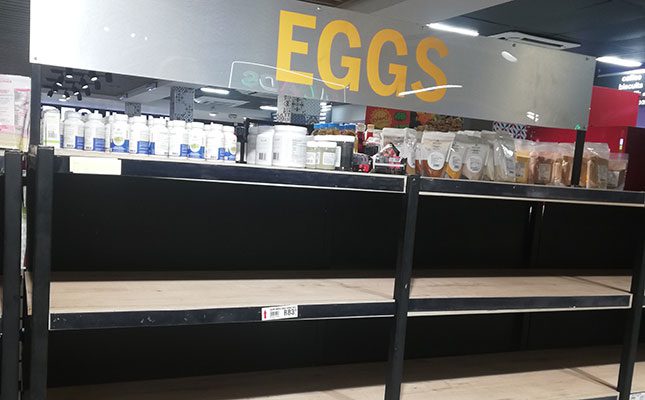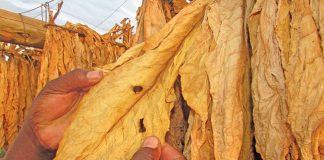
Photo: Sindira Chetty
According to the department, efforts to restore egg stock levels are ongoing and there has been a steady inflow of eggs onto the market.
In a statement, the department said they have opened import permits for eggs and poultry products from a few countries and that the practice predates the recent Highly Pathogenic Avian Influenza (HPAI) outbreak.
“Import of table eggs, fertilised eggs, pasteurised eggs, egg powder and liquid eggs have been ongoing for many years in South Africa and has not only started with the current outbreak.
“Other countries including Brazil, the US and Argentina have been exporting eggs to South Africa for quite some time and the department is currently processing import permit applications from a few more countries.”
The department does not stipulate from which countries South African retailers should import eggs, it said.
Instead, its role is to ensure that biosecurity-risk assessments are conducted when importers apply for permits.
Minister Thoko Didiza has expressed satisfaction with the containment of the HPAI outbreak, highlighting that 70% of non-infected farms continue normal egg and chicken production.
The minister anticipated a return to normalcy early next year, considering the relatively short egg production cycle.
“Since the egg production cycle is not too long, we expect the situation to normalise early next year. We will continue to import more eggs should the situation not improve,” she said.
In preparation for the festive holiday season the industry has already imported 9 million fertilised eggs, 37 802 tons of day-old chicks, 62 metric tons of egg products and 30 986 metric tons of chicken meat.
“We have increased fertilised eggs from 1.9 million to 9 million in less than one month. These eggs will be chickens in less four months,” Didiza said.
Commenting on the availability of eggs and poultry meat, SAPA general manager of the Broiler Organisation, Izaak Breitenbach said it was likely that South Africa had seen the extent of the egg shortage as a result of avian influenza.
“While there is still somewhat of a shortage of eggs which is likely to remain until the end of the year, we still have eggs in the country. It is not as bad as expected and we should make a full recovery with time.”
In terms of chicken meat, he said they expect that there will be no shortage as to date, the country had imported approximately 100 million fertilised hatchling eggs.
“We have enough hatchling eggs to ensure chicken meat stocks for at least four month and we are still importing more so we do not foresee any shortage with regards to chicken meat.”










